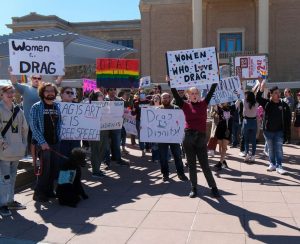Colombia Outraged by Brutal Murder of Trans Woman Sara Millerey.
The violent death of Sara Millerey González, a 32-year-old trans woman and activist, has shaken Colombia. Her murder in the city of Bello, Antioquia, during the first weekend of April has sparked widespread outrage, with many, including President Gustavo Petro, calling it a brutal act of hate.
Sara’s final moments were deeply disturbing. On April 4, she was reportedly raped, her arms and legs were broken, and her body was thrown into the La García stream.
Some witnesses not only watched, but allegedly recorded the scene as she struggled in the water. Those videos later surfaced on social media, adding another layer of heartbreak.
Rescue workers pulled her from the stream and rushed her to the hospital, but she died the next day, on April 5, from the extent of her injuries.
President Gustavo Petro addressed the tragedy directly, saying on X: “What happened in Bello is fascism. Fascism is the violent erasure of human difference—be it political, religious, ethnic, or sexual. There are Nazis in Colombia.”
Local leaders are demanding justice. Bello’s mayor, Lorena González Ospina, released an emotional message online condemning Sara’s murder as a hateful and horrifying act.
“Sara was attacked with unimaginable cruelty. What’s just as painful is the silence of those who stood by,” she said.
“We have a responsibility to protect the LGBTQ+ community. We cannot keep letting transphobia destroy lives.”
The mayor has pledged full cooperation with authorities, and a 50 million peso reward (about $11,000 USD) is being offered for information leading to an arrest.
Ms. Ospina confirmed that evidence has been turned over to the Prosecutor’s Office and a special investigation is underway, adding the hashtag #JusticiaParaSaraMillerey to her Instagram posts about the murder.
Across the country, LGBTQ+ advocates are calling Sara’s death a symptom of something much deeper—a culture that often ignores, excludes, or mistreats trans people.
In a powerful statement, advocacy group Caribe Afirmativo wrote:
“Sara’s murder didn’t start that day. It started when she was denied a fair chance at work, when people mocked her on the street, when institutions refused to recognize her. She had to fight to exist, every single day. The violence she faced didn’t begin or end with her death.”
The group urged Colombians to move beyond passive grief.
“Let this anger move us. Let it push us to organize, to demand change. Sharing a hashtag once a year isn’t enough. We need action, real justice, and lasting respect for trans lives.”
Sara Millerey’s death is not an isolated tragedy. According to Colombia Diversa, a leading LGBTQ+ rights organization, at least 63 LGBTQ+ people were killed in Colombia in 2023, with trans women facing the highest levels of targeted violence.
Latin America remains one of the most dangerous regions in the world for trans people. A 2022 report by Transrespect vs Transphobia Worldwide ranked Colombia among the top 10 countries for reported murders of trans individuals.
Despite legal advances, such as the ability to change gender markers on IDs and anti-discrimination laws, trans Colombians often face barriers to employment, healthcare, and basic safety.
Many rely on informal economies to survive, leaving them especially vulnerable.
More Articles from Lawyer Monthly





















